“Therapy and ritual” – bela in conversation with Pope Sangreta
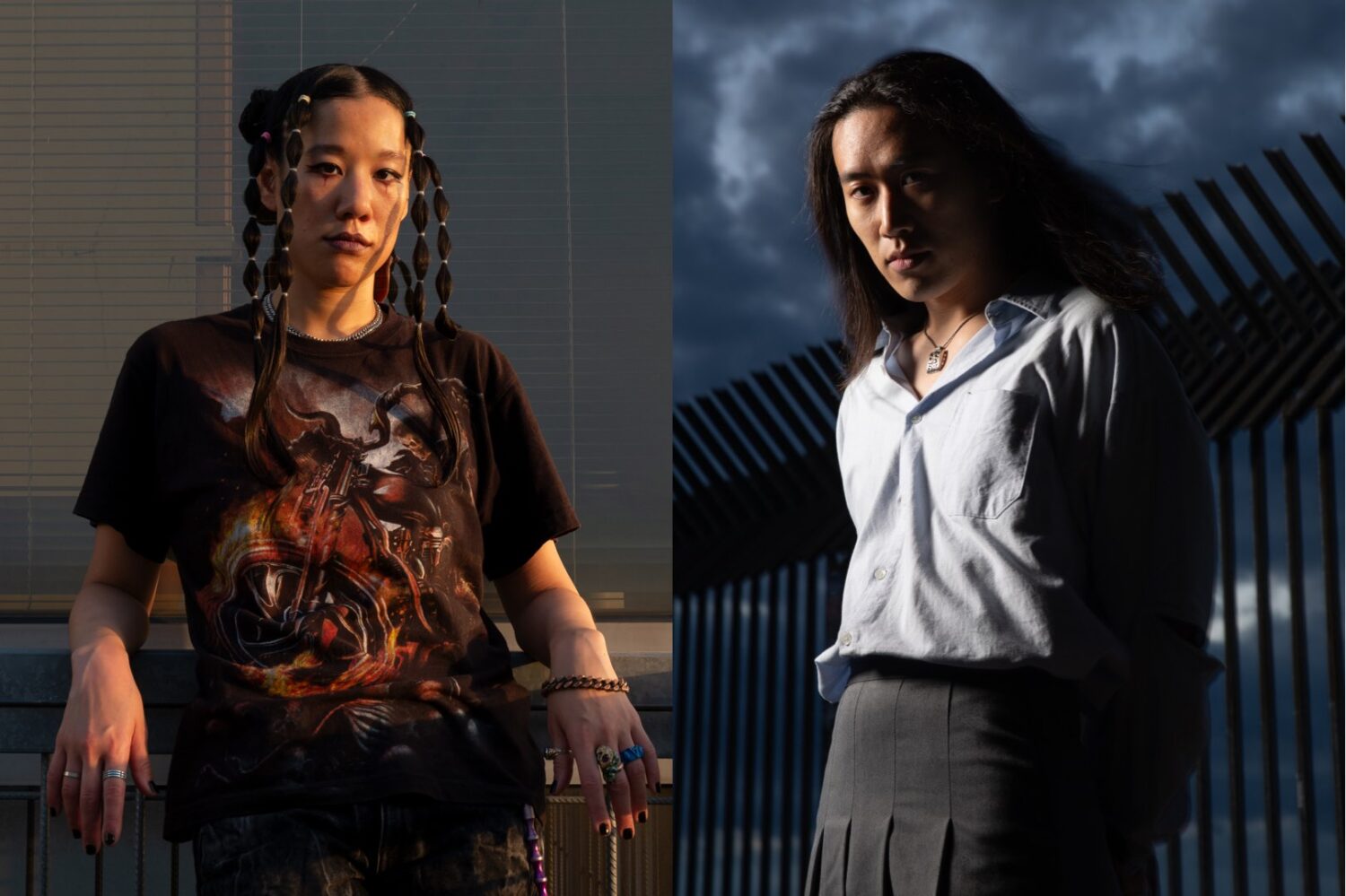
POPE SANGRETA: We both find similar emotions, especially harsh rage in our music. What is your personal experience to make you want to focus on this emotion in your projects?
BELA: I never chose rage, it chose me. I still haven’t found a way to forgive some people in my personal life for their violence. As a result, I couldn’t appreciate anything in life for a long time. The more I create music, the more I recognize that it originates from a place of unaddressed anger and a feeling of confinement. Initially, I sought to escape, but then I wanted to express it. Honestly, I am uncertain of what lies ahead. What about you? What puts you in the anger in your performances? Do you feel comfortable sharing some of the reasons behind your artistic choices?
POPE SANGRETA: Anger and sadness are the two emotions I feel the most comfortable and natural to express with my vocals. Also, for a long time, that’s been the only expression in my family. Maybe that’s the strong emotions imprinted in my memory and my body. All the unsolved pain and all the frustration I have carried with me.
I read your previous interview, and I can really relate to your experience in Korea. The situation in Taiwan is different, but not the trauma and the experience of growing up under the high pressure / conservative society in East Asian countries. I was in a pretty similar place, so I moved to Europe 9 years ago and have fought every year to stay here since.
I was quite fascinated when you mentioned how in the Korean language there is a specific calm emotion in a rage-turned-sadness state. I somehow see the image of you like a Taoist priest practicing exorcism at your performance (lol).
Do you feel your performance is like a therapy or ritual for you?
BELA: I feel you, we have to fight to stay here. When I left, I thought to myself, ‘never again’. It’s an endless submission over there. Therapy and ritual… yeah, in my own sort of way and not the hopeful way. In that it is both sensing and lamenting; it is a therapy and a ritual I put myself through. I’m reading a diary, and I can’t help but remind myself, ‘oh, you survived that,’ ‘oh, someone did this to the world. How could I forget?’. I do worry that it might be just blaming random people’s actions. But when you move on from punishing and revenging and bring it to the performance art, things get different. I can ask for accountability by publicly mentioning things, but with the means to make sure that people can’t understand what I’m saying so I don’t get sued ¯\_(ツ)_/¯
“I never chose rage, it chose me.” (bela)
POPE SANGRETA: As you also mention, you started to combine Pungmul influence and more aggressive expression in 2021, and later you moved to Berlin in 2022. Are these moves related to each other?
BELA: Aggressiveness was always there, in a passive mode. I needed to find a way to express it in a healthy way. After making a life-time decision to leave behind toxic relationships that made me dread going home at night, I started building my own friendships and allies in a new place where I am respected. Only then did I begin to feel like I can finally open up about it, and also distance myself from it. That definitely coincided with the move to Berlin. I didn’t have a particular preference for Berlin; it just came to me. However, I have grown to appreciate it much more, especially for its music scene and the kind people I encountered…which is lucky.
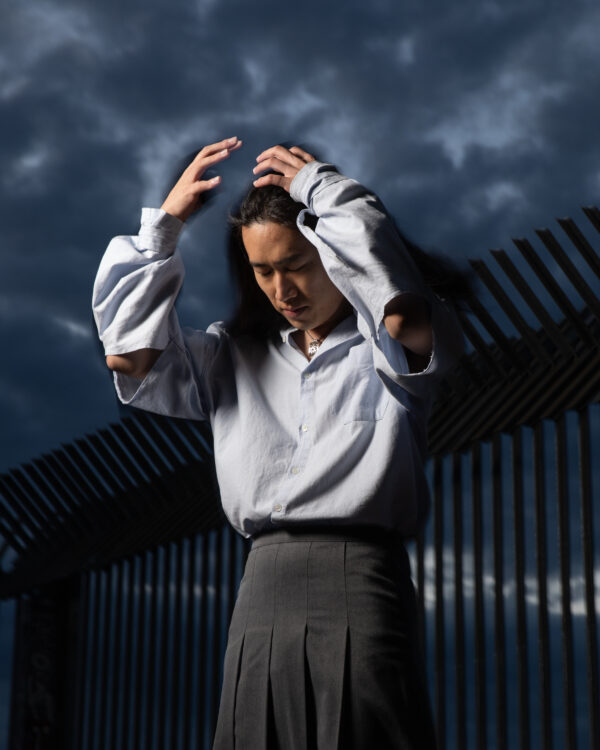
BELA: Let’s talk about our vocals! You make a very volatile rendition of feminist-punk trap music. I noticed the use of growling vocals throughout the piece. I personally chose growling to present something completely outside of the gender boxes – and I always thought listening to good growls can be a quite transcendent experience. What is your unique approach to the technique?
POPE SANGRETA: I joke to my friend (also not really a joke) that I learn my rapping technique from how my mom would bitch at me (and she learned that from her mother), it is almost like a female heritage of my family. I think all the diss-rapping techniques carry verbal abuse trauma as an art form itself.
I’m more influenced by metal than punk music and agree that growling is outside of the gender box. I find it a way to express an extreme state. I like to switch between my normal vocal and growling like a sudden transformation of two different entities in one body.
For you, is the growling a way to transform yourself to something else? Did you use your speaking vocal in your previous project? How do you feel different between them?
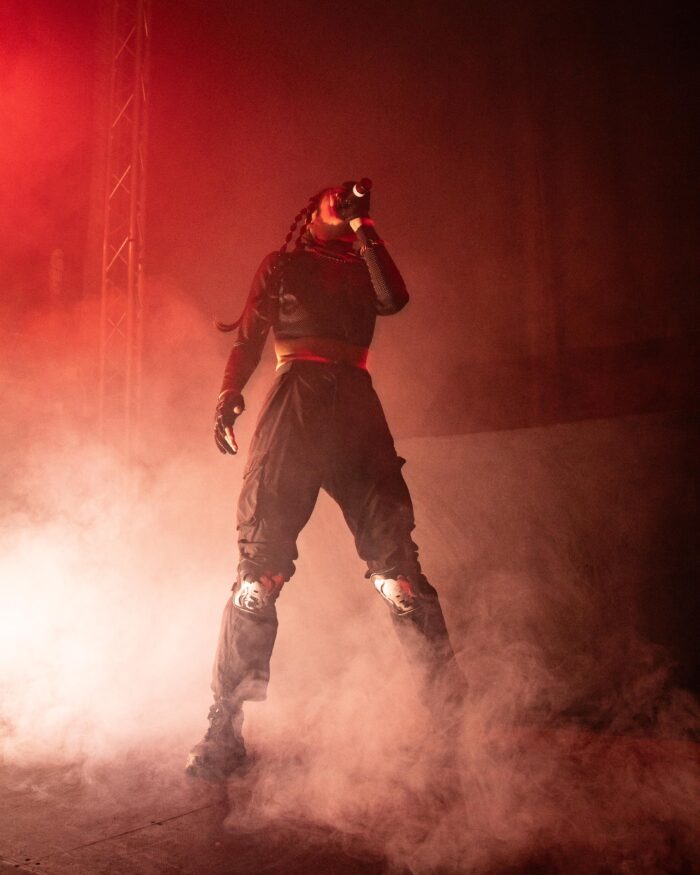
“Growling is outside of the gender box” (Pope Sangreta)
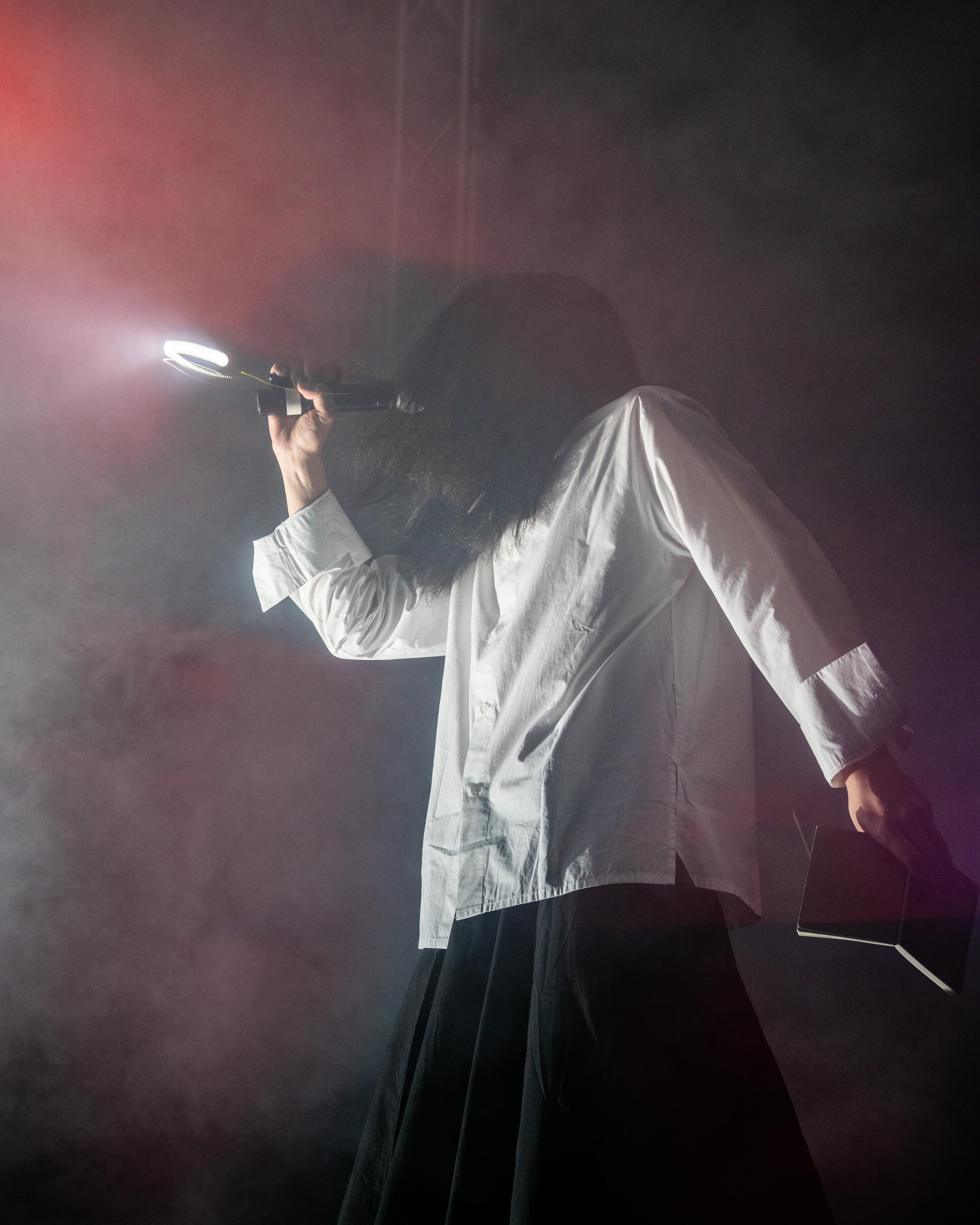
BELA: It’s more of a revelation than a transformation. The growling illogically being is much closer to what I am, not this eloquent guise I put on. I haven’t been using my speaking voice unless it is pitch shifted up an octave. When I was supporting Pharmakon I told her that I am non-binary, and she told me that she could see why I was using a pitched-up mic during rehearsal. That was a precious moment. But as of recently, I am plotting to use my speaking voice for other performance pieces to infiltrate the cisgender order a little bit and start disrupting a little bit. We’ll see how it goes…
You asked me earlier about if my work is therapeutic. How about you? As a fellow Asian, the verbal abuse at home is so real. The ‘wish I never had you’ talk we always joke about ends up creating a hole for us, making us think we are not worthy of living sometimes. Is your method to fight or heal? Not just in music, but in your general practice.
“I find myself have always been fighting.” (Pope Sangreta)
POPE SANGRETA: I find myself have always been fighting most of the time, just starting to learn how to heal in recent years (but still not very good at it, lol). I think of fighting is an instinct for survival and part of the struggle to move on/protect oneself in actions. Holding on to all of one’s restless tension is truly draining.
Sure, I started doing music as sort of self-therapy, like I found another language that can express this part of myself. It was scary to me that those abusive voices/ toxic emotions still haunt my mind and I need to let it out. Doing music and performance is a way to embrace this part of me and take back control of my own voice.
And about the choice of language, all your lyrics are in Korean, are they referring to specific context or decision?
BELA: Very specific ones, yes. Too personal to lay it out here, but the part I can tell you is the deconstructed Pansori lyrics and criticizing the enablers of capitalist violence. I may or may not be singing about gutting some people or swimming in hell.
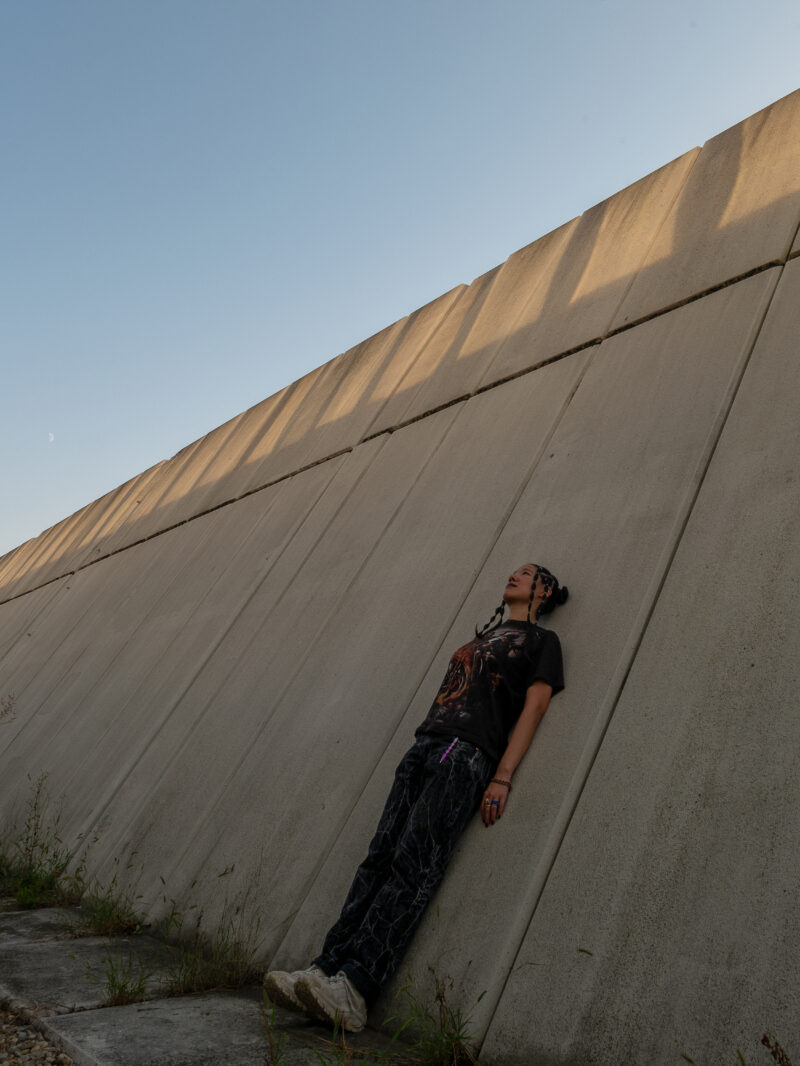
POPE SANGRETA: I never sing anything in Mandarin, somehow I just never feel the language connect with me. And also, I don’t really want to associate with the national identity. Some of my recent tracks are pretty much connected to my experience in Vienna and the hypocriticalness of the ‘Western openness’.
Some of your tracks reminded me of the Netflix series Kingdom; almost like an intense horror movie scene. Do horror movies influence your current project too? Do visual elements influence your production?
BELA: Movies make me think about budgets, art team labor hours, and the writers’ room. Rather, I am inspired by what people working in a terrible environment might be thinking. You know, gutting people and giving it up and ending up in some gutter where I meet a lonely death, swimming in hell, something like that. Something closer to home.
Does your music and performance have film influences? From the photos and footage I find on your Instagram, I feel like your makeup and movements and persona is very strong, and I felt like there must be some kind of visual storytelling going on.
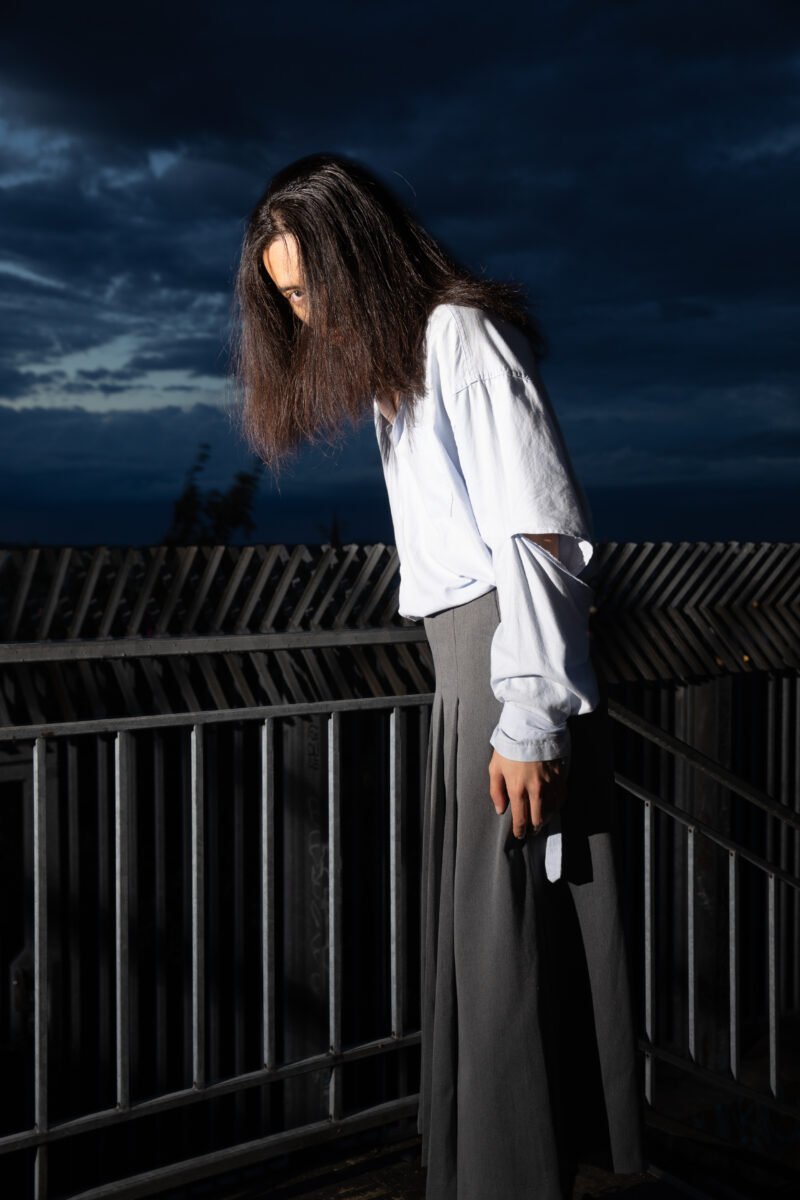
POPE SANGRETA: Alright, so it’s really reality-based horror for you.
And indeed, my stage name Pope Sangreta actually refers to Alejandro Jodorowsky’s movie ‘’Santa Sangre’’ (1989). The movie addresses the trauma of the female body and the family trauma passed down to the son who became a serial killer with the hands of his mother.
In the beginning of my music project (I started doing music in 2018), I learned how to write lyrics by describing a movie I watched, or I found a figure or a person who I want to continue their untold story and mix my own experience in it. Most of them refer to the trauma experience of the female body.
For me, the stage persona is a way to reveal a different version of myself who could only exist completely in a certain moment where I am who I really am but alienated at the same time.
BELA: That’s a very creative way to mix fictionality and lyricism! Also very methodical. I want to focus more on creating stories rather than observing and reflecting. I’m too obsessed with realities and telling stories that are not being told enough. Maybe that’s because the journalism courses I took in my college are still haunting my subconscious. It’s interesting how we approach our music so differently, while coming from a similar fabric of histories. I can’t wait to meet you in real life, at the Unsafe+Sounds Vienna!
POPE SANGRETA: Yes, totally! Really happy to have this conversation with you <3 and looking forward to seeing you in person at the festival!
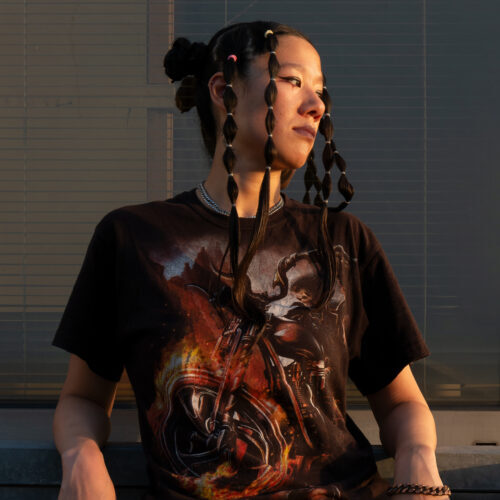
Pope Sangreta
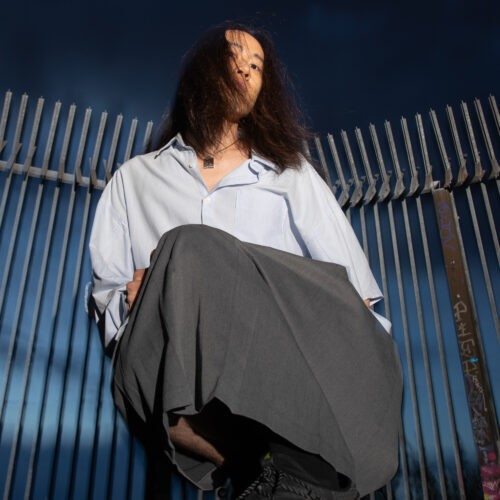
bela